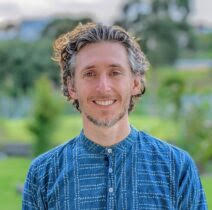MAJECT

Massachusetts Justice and Equity for Child Trauma

MAJECT
Massachusetts Justice and Equity for Child Trauma

Project Director
Katherine McCarthy
Katherine (Katie) McCarthy, Ph.D., is a clinician, consultant, researcher, and trainer specializing in the assessment and treatment of traumatic stress in children, adolescents, and families. Dr. McCarthy earned her doctoral degree from the California School of Professional Psychology (CSPP) at Alliant International University in San Francisco, CA. She completed an APA-accredited pre-doctoral internship at Community Healthlink Youth and Family Services in Worcester, MA. She also completed a two-year postdoctoral fellowship and an advanced training certificate program in traumatic stress studies at the Trauma Center at JRI in Brookline, MA. She has extensive project management experience and has led federally funded initiatives since 2019. Her leadership role on MAJECT involves overseeing project administration, screening and referrals, outreach and collaborative activities, dissemination and public awareness, and Planning Team activities. She has clinical experience providing trauma EBPs to vulnerable and diverse trauma-impacted children, adolescents, and families in a variety of settings, and she also provides direct clinical services for MAJECT.

Director of Evaluation
Hilary Hodgdon
Dr. Hodgdon is a licensed clinical psychologist, trainer and researcher specializing in the study and treatment of traumatic stress. She received her Ph.D. in Clinical Psychology from Temple University in 2009. Dr. Hodgdon is the Research Director of Justice Resource Institute (JRI) and serves as the Principal Investigator of several National Child Traumatic Stress Network (NCTSN) centers focused on dissemination of evidenced based practices for trauma-impacted children, youth, and families both locally and nationally. Through her role as JRI’s Research Director, Dr. Hodgdon conducts treatment outcome and basic science research with trauma-impacted populations, co-chairs the Institutional Review Board, oversees several federally funded treatment dissemination initiatives, and manages academic collaborations. She is the Principal Investigator of both the Building Resilience through Residential Communities (BRTRC) and the Metropolitan Boston Complex Trauma Treatment Initiative (MB-CTTI), SAMSHA funded National Child Traumatic Stress Network (NCTSN) centers focused on trauma informed systems change and implementation of evidenced based practices for trauma with professionals, agencies and broader systems that interface with children, youth and families impacted by child maltreatment and trauma. She is a certified trainer in the Child Welfare Toolkit and Resource Parent Curriculums of the NCTSN and the Attachment, Regulation and Competency (ARC) treatment framework for children with complex trauma. Dr. Hodgdon provides training on the neurobiology and developmental impact of complex trauma and evidenced based interventions for traumatic stress to a variety of provider groups including social workers, mental health practitioners, and administrative, milieu and nursing staff at outpatient, residential, inpatient and community mental health settings. Her research interests center on deepening understanding of the etiology and sequelae of childhood trauma, elucidating mechanisms that convey risk for psychopathology among vulnerable populations, and development and evaluation of trauma-informed treatment approaches. She has co-authored over a dozen peer reviewed journal articles and book chapters and presents regularly at scientific conferences, including ISTSS and APA. Dr. Hodgdon has extensive experiencing mentoring and supervising graduate students, clinical and research staff, interns and volunteers, and predoctoral and postdoctoral fellows in psychology.

Clinical Director
Elizabeth Hopper
Elizabeth Hopper, Ph.D., is a licensed clinical psychologist with a specialization in traumatic stress. She completed a Ph.D. in Clinical Psychology at St. Louis University and a postdoctoral fellowship at the Trauma Center in Boston. Dr. Hopper is a Program Director at Justice Resource Institute (JRI), serving as an administrator, supervisor, clinician, and trainer. She holds leadership positions in two National Child Traumatic Stress Network (NCTSN) centers focused on the dissemination of evidenced-based practices for trauma-impacted children, youth, and families. Dr. Hopper is Project Director of the Metropolitan Boston Complex Trauma Treatment Initiative, a mobile service network delivering evidence-based trauma interventions to high-risk and underserved complex trauma-exposed children and youth and families. She is Co-Director of the National Center on Child Trafficking (NCCT), a SAMHSA-funded resource center whose goal is to establish a collaborative, consistent, and integrated mental health response for youth and families who have been impacted by commercial sexual exploitation and trafficking. Dr. Hopper is also Co-Chair of the Mental Health Council for HEAL Trafficking, a national network of health and public health professionals. She has been involved in anti-trafficking work for two decades, including her work as the Director of Project REACH, a national direct services and T/TA program that provided mental health services to survivors of human trafficking and her role as director of the New England Coalition Against Trafficking (NECAT), a regional network of cross-discipline professionals engaged in anti-trafficking work. Dr. Hopper has collaborated with numerous agencies and organizations in developing trauma-informed care systems. She is co-author of two books that address body-oriented intervention, including Treating Adult Survivors of Childhood Emotional Abuse and Neglect: Component-Based Psychotherapy, which presents a complex trauma treatment framework for adults, and Overcoming Trauma Through Yoga: Reclaiming Your Body, a book that introduces yoga as a body-based intervention for trauma. She has written numerous scholarly articles and book chapters on complex trauma, trauma-informed care, homelessness, and human trafficking and has particular interests in the impact of early developmental trauma and human trafficking and integrative models of healing.

Gabriel Corens
Gabriel Corens, LICSW is a clinical social worker who specializes in the clinical treatment of complex and developmental trauma and supporting system-level adoption of trauma-informed care practices. Mr. Corens completed his master's in social work from the Smith College School for Social Work in 2017 and a postgraduate training fellowship at the Trauma Center in Brookline, MA in 2019. Mr. Corens has clinical experience in outpatient counseling and community-based mental health and has worked with children, adolescents, and adults in English and Spanish. He has also worked in the fields of contemplative and experiential education in the United States and internationally. Mr. Corens has particular interests in supporting individuals and families through attachment and relational therapies, as well as approaches targeting physiological self-regulation, including through the use of ARC, SMART, EMDR, PCIT, neurofeedback, and biofeedback. Mr. Corens has worked on multiple National Child Traumatic Stress Network initiatives and currently serves as the Associate Director for the Building Resilience through Residential Communities (BRTRC) and a clinician on the Metropolitan Boston Complex Trauma Treatment Initiative (MB-CTTI).

Jennifer Roman-Martin
Jennifer Roman-Martin, LICSW, is a clinical social worker with expertise in the treatment of complex trauma across the lifespan. She has provided trauma treatment, psychological evaluation and expert testimony for asylum seekers and survivors of human trafficking in the U.S. and internationally. She worked cross-culturally in international mental health program implementation with marginalized communities in sub-Saharan Africa, Southeast Asia and the Caribbean. She previously served as the Program Coordinator for Project REACH, a psychological response to human trafficking program of The Trauma Center at Justice Resource Institute. Ms. Roman-Martin integrates her specialized training in EMDR, CPP, TF-CBT, ARC, SMART and PCIT into her clinical practice, and enjoys providing supervision and training to ensure trauma informed care. She currently serves as a consultant with the State Department’s Office to Monitor and Combat Trafficking in Persons Human Trafficking Expert Consultant Network, as well as adjunct social work faculty at the post-graduate level. Her current work includes clinical and systems level interventions through NCTSN grant projects for youth who have experienced trauma.

Callie Sopper

Kathleen (Katie) Holte